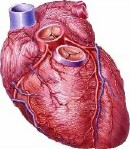
WEDNESDAY, Jan. 2, (HealthDay News) — Chinese scientists have found that recent ex-smokers contemplating heart bypass surgery may run into trouble due to lingering smoking-related enzyme changes in the leg vein typically used for grafts.
The researchers noted that over time problematically high enzyme levels found in the saphenous (leg) vein do eventually drop back to normal once a smoker has kicked the habit. However, their analysis of 208 patients undergoing elective coronary artery bypass graft (CABG) surgery revealed that this stabilization does not transpire immediately.
While noticeable improvement can be seen within six months after smoking cessation, the team found that full enzyme-reversal process can sometimes exceed a year. So, patients who have lived smoke-free for less than a year before surgery run the risk that their bypass graft will ultimately fail.
“Although recovery after smoking cessation appears somewhat disappointing, it illustrates exactly the importance of prompt smoking cessation for patients who will receive CABG,” Dr. Sun Yongxin and colleagues at Zhongshan Hospital at Fudan University in Shanghai said in a journal news release.
The study appears in the January issue of the Annals of Thoracic Surgery.
The authors note that the issue is of potentially enormous concern in their home country, given that China is the biggest producer and consumer of cigarettes worldwide, with roughly a third of its 1.1 billion residents currently smoking.
The team divided their patient pool into six groups according to their current smoking status and time passed since quitting.
Heavy smoking was found to boost levels of “matrix metalloproteinase enzymes” found in the saphenous vein. The vein is most commonly used during coronary artery bypass surgery for the kind of grafting that can re-open heart pathways and improve heart health. Such high enzyme levels have previously been linked to an increased risk for graft failure.
The authors stressed that patients need to quit smoking as soon as possible before undergoing graft surgery. At the same time, they suggested that alternative grafting sources may be needed for some patients.
“[This study] may provide the evidence for encouraging the use of more arterial grafts [rather than vein grafts] when heavy smokers undergo CABG,” Yongxin’s team said.
While the study found an association between recent past smoking and higher graft failure risk, it did not prove a cause-and-effect relationship.
More information
For more on coronary bypass surgery, visit the U.S. National Institutes of Health.

